After Journey through Ancient Egypt and Greece, it is finally a time for the third part. The mythology of Ancient Rome.
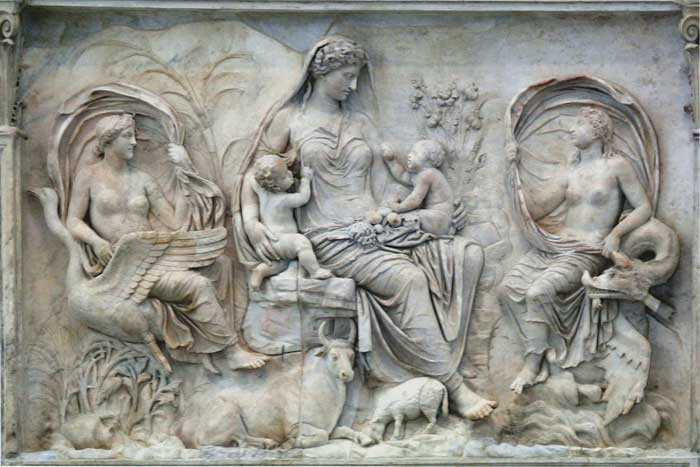
Like many other peoples of the ancient world, the Romans were convinced of the existence of gods. Initially, however, the Roman religion was vastly different from the Greek religion. The Romans did not imagine gods in a personal form like the Greeks or Egyptians. They did not create a great epic to match the Iliad and the Odyssey, nor did they have their own mythology. They believed that the world was full of various invisible forces, deities with no specific genealogy. Roman gods, unlike Greek gods, did not have marriages, paternal and sons. Their deities often did not even have names, but only nicknames that defined the scope of their activities. The Romans, who did not create any fantastic legends about the gods, were regarded in ancient times as the most spiritual nation. There was some extraordinary simplicity in the Roman religion. The basic idea was that’s all-human life was under the authority of the gods. With every, even the smallest activity, the Romans turned to them for help and protection. The fate of every human being, including those busy peasants and humble shepherds, was in the hands of the gods.
It was common among the Romans to believe that gods directly influenced people’s decisions and actions. Therefore, before each important step, people turned to the gods and tried to find out if they were giving any sign or warning. It was believed that these signs should be well read and explained. The signs of the gods were seen in such natural phenomena as thunderstorms, the flight of birds, the shape of clouds in the sky, the shape of the smoke of burning victims. During the fortune-telling, some attempts were made to read the will of the gods from the insides of slaughtered animals. The priests who dealt with divination were called augurs. When it was time for Rome to make important decisions for the state, augur, dressed in a toga with a purple trail, went to the Capitol, made a sacrifice to the gods, and asked for a sign from heaven. After praying, he would come out with a curved wooden staff and with it traced lines through the air that divided the sky into parts. Then he waited for a sign. At dawn, he watched the birds fly over the hill. He paid attention to the side from which they flew, their number and species, and finally their style. The fate of a war expedition, and thus the lives of many soldiers, often depended on the outcome of the divination.
Imperium Romanum:
The peoples conquered by the Romans in the course of their expansion differed from them in the nature of their beliefs. As subjects of the Romans, they continued to celebrate their holidays and worship their gods. Even in the west of the Empire, where the Latin language and the Roman way of life were strong, these religions did not die out. In the cities of Spain, Gaul, and Africa, next to the temples of Jupiter, there were temples of the gods worshiped by Gauls, Carthaginians and other peoples. The Romans were very tolerant in this respect. They themselves were eager to draw on other cultures and their beliefs. The deities of peoples from the East and Asia Minor – Egyptians, Syrians, and Persians – were especially popular among the Romans. Centers of these gods were established in many cities of the Roman empire. The gods of the East fascinated the Romans; for worshiping them was not limited to participating in ceremonies and sacrifices. These gods required a much greater human spiritual involvement. Their worshipers believed that after death they would find a place among them and be happy in another world.
Major Roman gods:
Janus
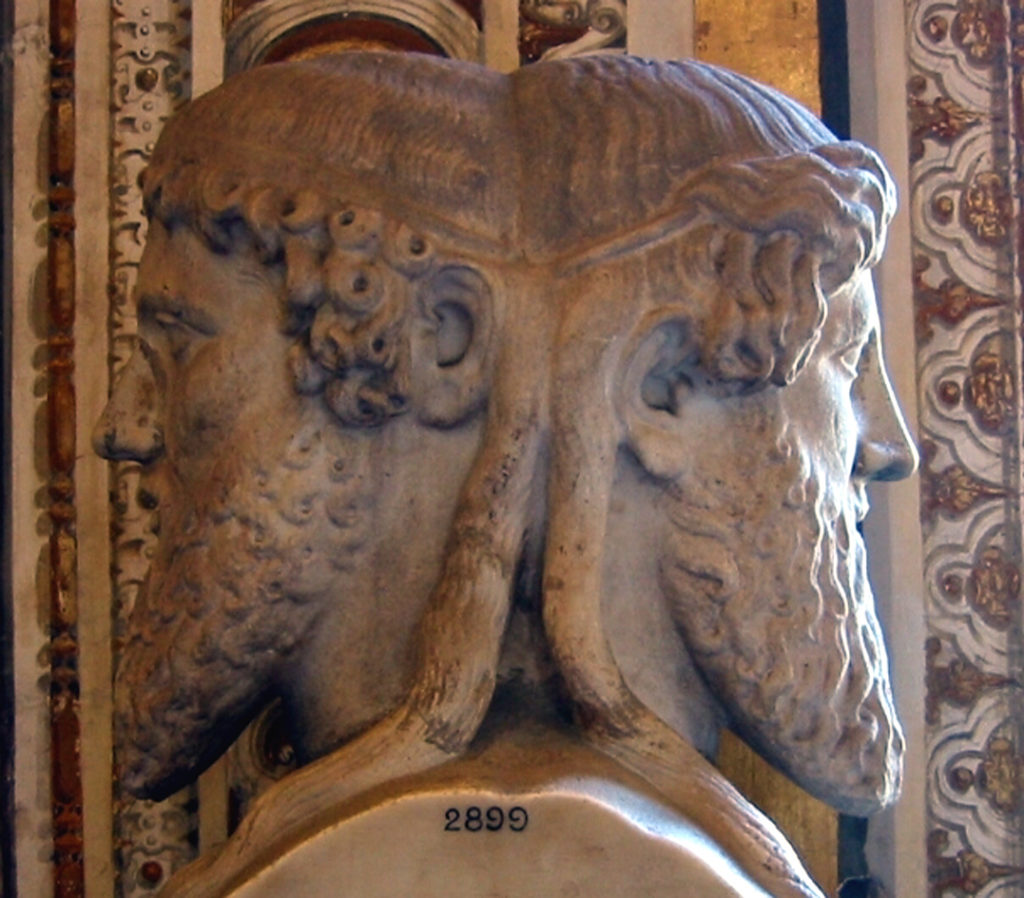
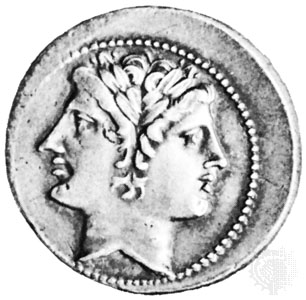
ijanus0001p1
the caring spirit of doors and gates, he was dedicated to every beginning the next day. Janus was a bearded male figure with two faces, one facing east and the other facing west.
Orkus ( Hades)
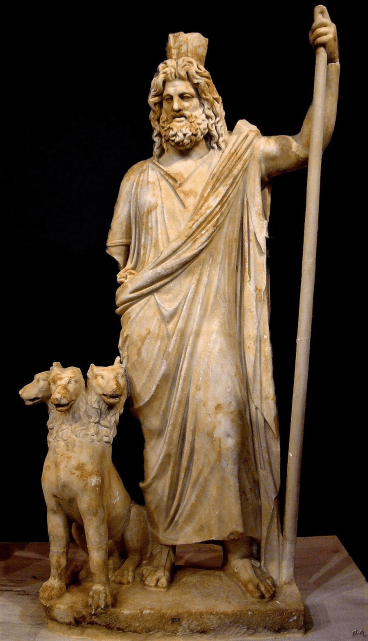
the ruler of the underworld and the world of the dead. he was married to Proserpine, thats he kidnapped from her her mother. Exactly like in the Greek myth.
Saturn (Kronos)

considered the protector of farmers. Ancient Roman god of harvest and agriculture. Husband Description, father of Jupiter, Neptune, Pluto, Juno, Ceres, and Veritas. Saturday was named after him.
Amor (Eros)
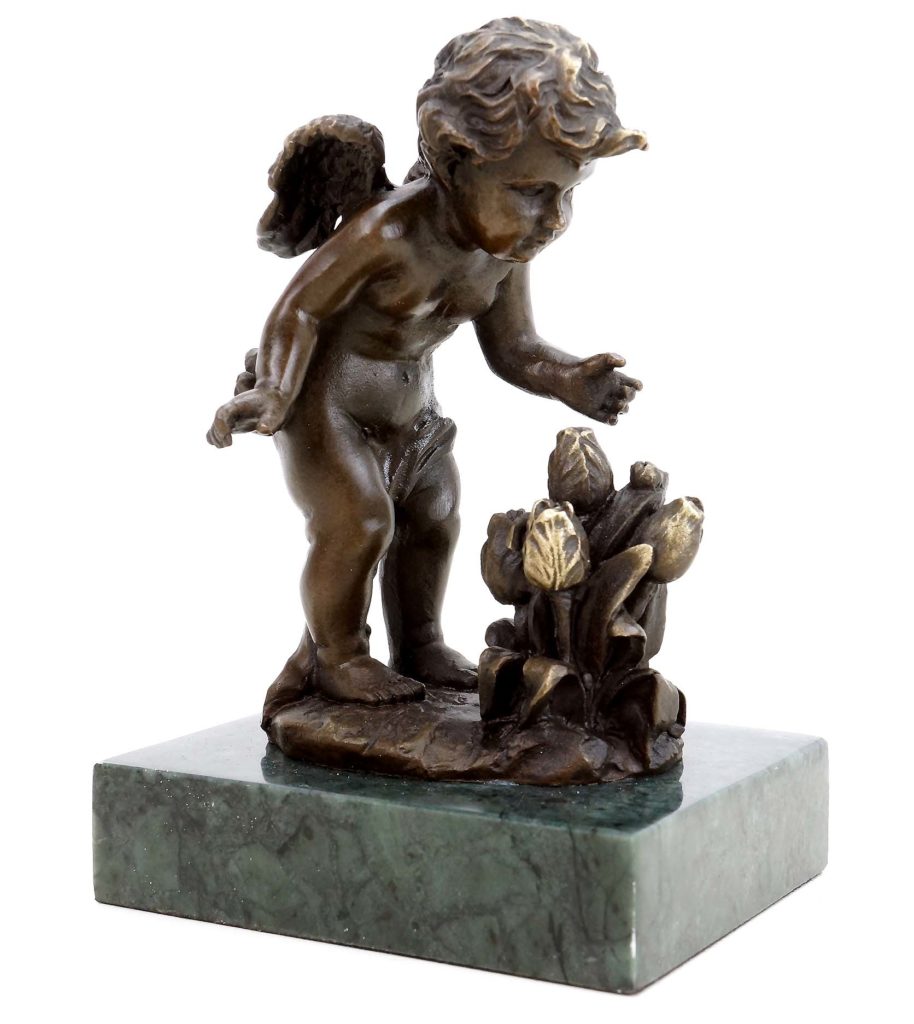
Ancient Roman god of love and beauty. The son of Venus and Mars. Cupid’s strength should be even greater than that of his mother, as he ruled over the dead sea creatures and gods on Olympus. Most often it was depicted in the company of Venus
Jupiter (Zeus)
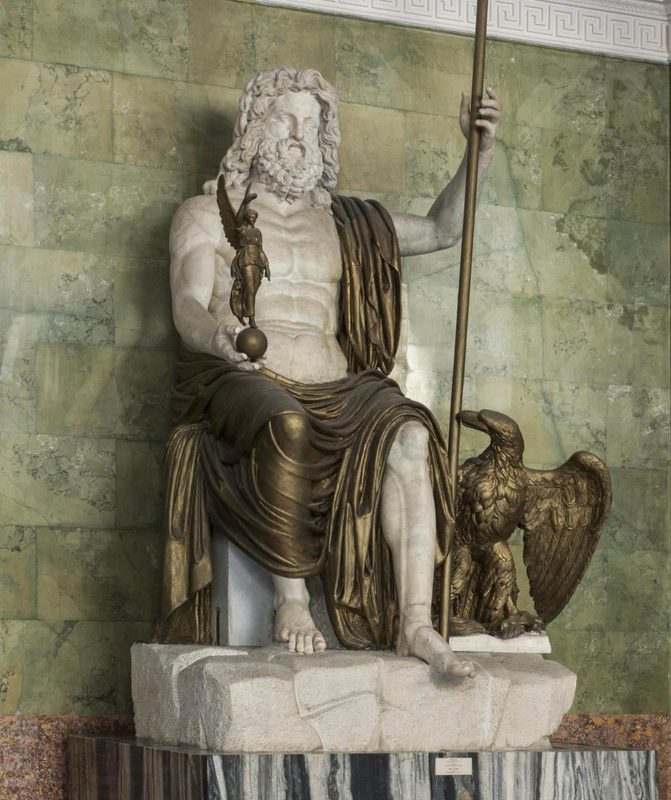
king of gods, god of heaven and thunder, son of Saturn and Opa. Principal deity of the Roman Republic and the Roman Empire. The rulers of Rome took an oath to Jupiter and worshiped him every September on the Capitol. He was the epitome of law, order, and justice. There were 2 temples dedicated to Jupiter in Rome. One was built in 294 BC. e., and the second was erected in 146 BC. to me. The personification of this god was an eagle and an oak. Juno was his wife and sister.
Juno (Hera)
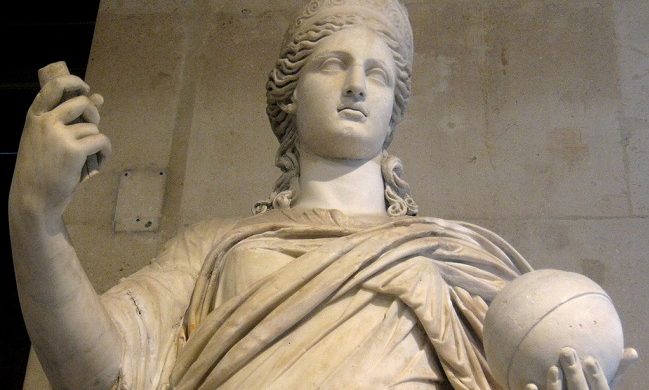
is the daughter of Saturn and Opa, the wife and sister of Jupiter, the queen of the gods. She was the mother of Mars and Vulcan. She was a defender of marriage, motherhood, and family traditions. June was named in her honor. She was part of the Capitoline Triad along with Jupiter and Minerva. There is a statue of this goddess in the Vatican. It is depicted wearing a helmet and a shell. Not only mere mortals, but all the gods of ancient Rome worshiped and respected Juno.
Neptune (Poseidon)

the god of the sea and fresh water. Brother of Jupiter and Pluto. The Romans also worshiped Neptune as the horse god. He was the patron of horse racing. One temple was built in Rome in honor of this god. He was near the Flaminia circus in the southern part of the Champs de Mars. The circus had a small hippodrome. All these structures were built in 221 BC. to me. Neptune is an extremely ancient deity. He was a household god even among the Etruscans, and then emigrated to the Romans.
Ceres (Demeter)
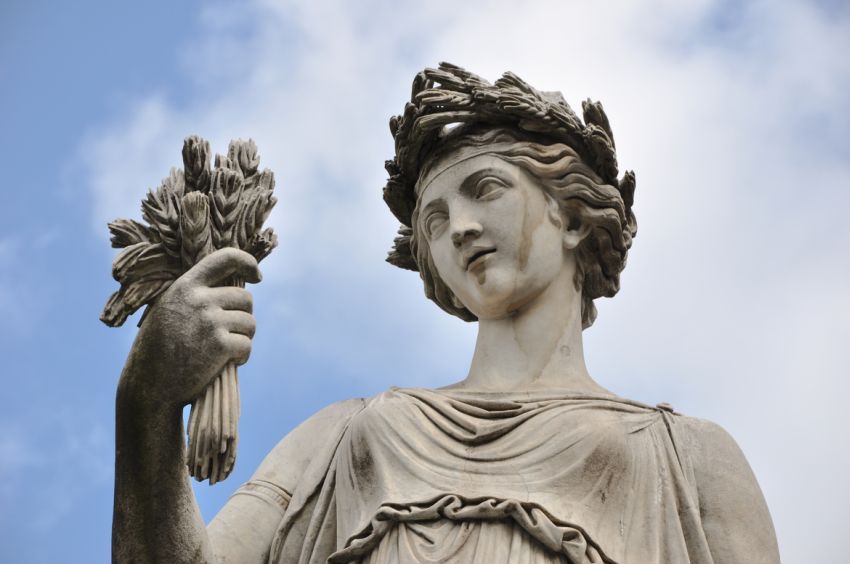
goddess of harvest, fertility, agriculture. She was the daughter of Saturn and Ope and the sister of Jupiter. She had an only daughter, Proserpine (goddess of the underworld), from a relationship with Jupiter. Ceres was not believed to have seen the hungry children. It put her in a state of regret. That is why she always looked after orphans, surrounded them with care and attention. Every year in April, a festival dedicated to this goddess was held. It lasted for 7 days. It has also been mentioned at weddings and harvest ceremonies.
Minerva (Athena)
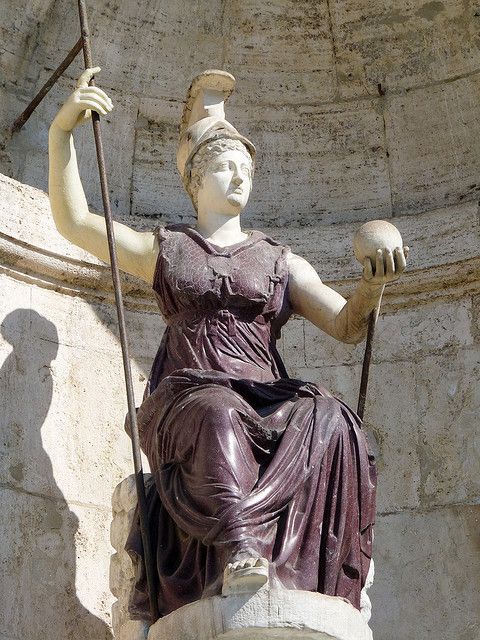
goddess of wisdom, patroness of art, medicine, trade, military strategy. Often gladiator battles were held in her honor. She was considered a virgin. She was often depicted with an owl (Minerva’s owl), which symbolized wisdom and knowledge. Long before the Romans, this goddess was worshiped by the Etruscans. Celebrations in her honor were held from March 19 to 23. This goddess was worshiped on the hill of Esquiline (one of the seven hills of Rome). The Temple of Minerva was built there.
Apollo (Apollo)
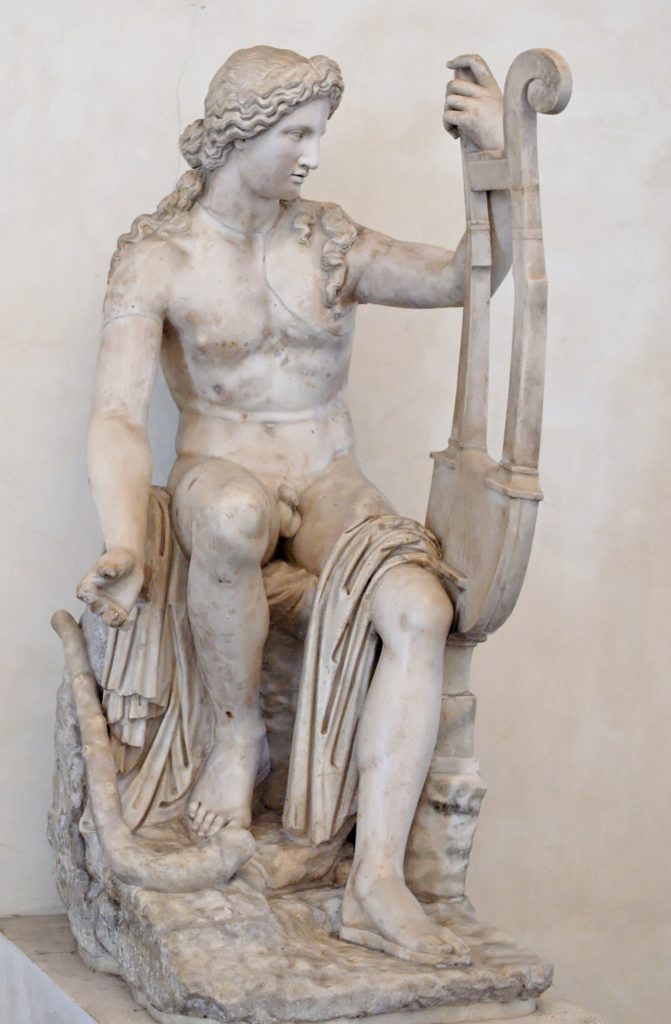
is one of the main gods of Greek and Roman mythology. This is the god of the sun, light, music, prophecy, healing, art, poetry. It should be said that the Romans in relation to this god took as a basis the traditions of the ancient Greeks and practically did not change them. Apparently, they seemed extremely successful to them, therefore they did not change anything, so as not to spoil the beautiful legends about this god.
Diana (Artemis)
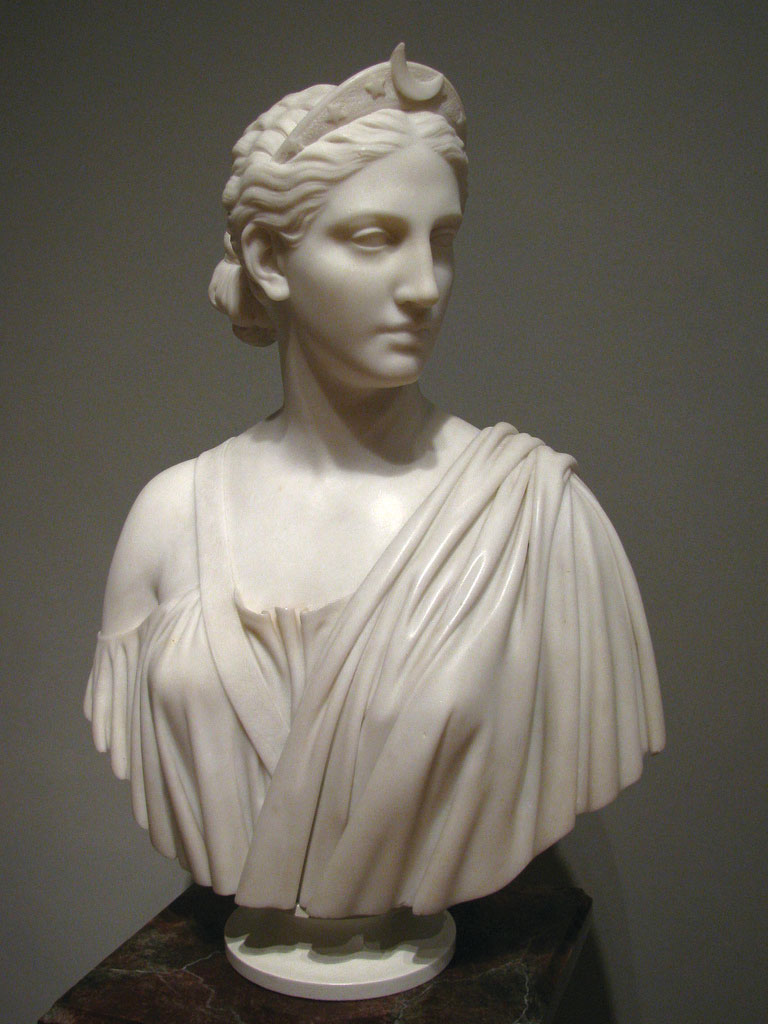
goddess of hunting, nature, fertility. She, like Minerva, was a virgin. In total, the gods of ancient Rome had 3 goddesses who took a vow of celibacy – these are Diana, Minerva, and Vesta. They were called virgin goddesses. Diana was the daughter of Jupiter and Latona and was born to her twin brother Apollo. Since she patronized hunting, she wore a short tunic and hunting boots. She always had a bow, a quiver, and a crescent-shaped tiara. The goddess was accompanied by deer or hunting dogs. The Temple of Diana in Rome was built on the Aventine Hill.
Mars (Ares)

a god of war, and a defender of farmland in the early Roman period. He was considered the second most important god (after Jupiter) in the Roman army. Unlike Ares, who was treated with disgust, Mars was respected and loved. During the time of the first Roman emperor Augustus, a temple on Mars was built in Rome. In the days of the Roman Empire, this deity was considered the guarantor of military power and peace and was never mentioned as the conqueror.
Venus (Aphrodite)

the goddess of beauty, love, prosperity, victory, fertility, and desires. The Roman people considered her a mother by the son of Aeneas. He survived the fall of Troy and fled to Italy. Julius Caesar claimed to be the ancestor of this goddess. Then in Europe, Venus became the most popular deity in Roman mythology. She personified sexuality and love. The symbols of Venus were the dove and the hare, and the plants were rose and poppy. The planet Venus is named after this goddess.
Volcano (Hephaestus)
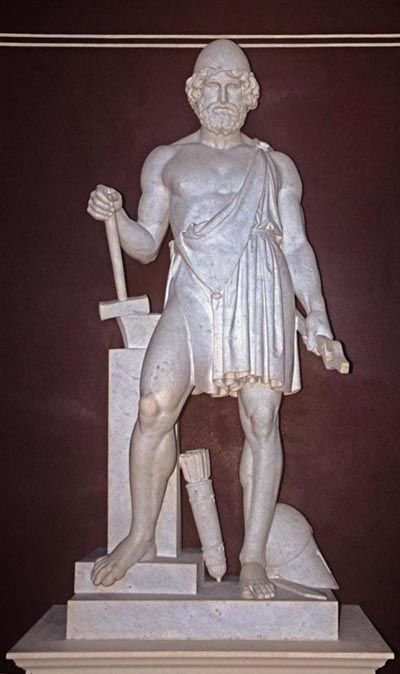
the god of fire and patron of blacksmiths. He was often depicted with a sledgehammer. This is one of the oldest Roman deities. He also made armor and weapons for other celestial beings. He established his forge at the mouth of Mount Etna in Sicily. In his work he was helped by golden women created by God himself.
Faunus (Pan)
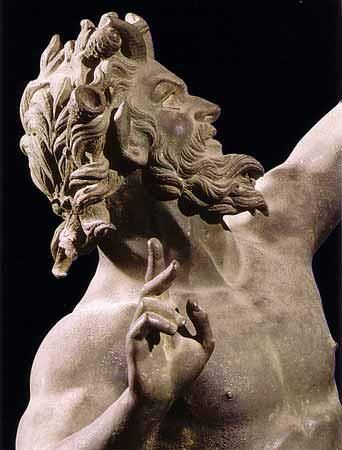
one of the oldest Roman deities, the legendary king of the Latinos who came with his people from Arcadia. Faunus was the horned god of wild forests, plains, and fields.
Cybele (Magna mater – The great mother )
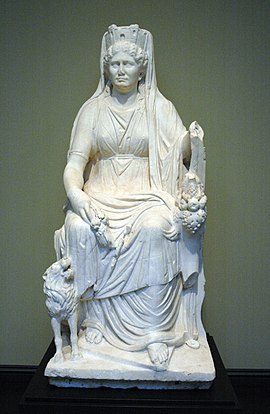
Cybele – Anatolian mother goddess; She is the only known goddess of Phrygia and was probably her state deity. Its Phrygian cult was adopted and adapted by Greek colonists from Asia Minor and spread to mainland Greece and its more distant western colonies around the 6th century BC. Goddess of caves and mountains, walls and fortresses, nature, and wild animals.
Bacchus ( Dionysius)
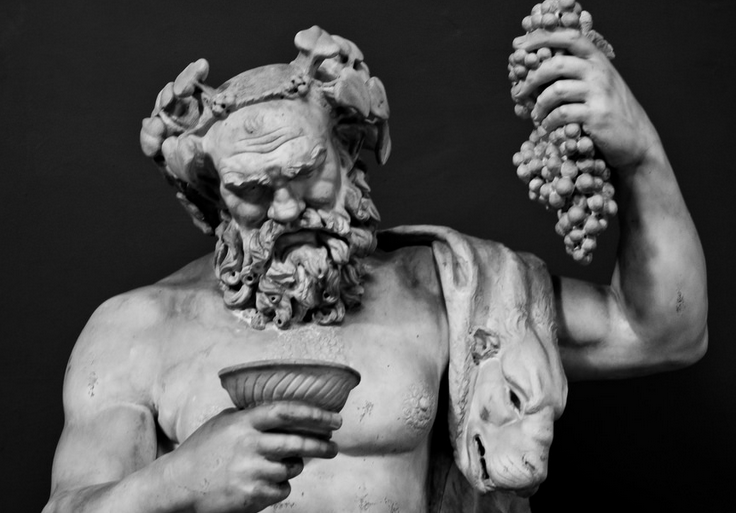
The ancient Roman god Dionysus was one of the twelve Olympians, the principal gods of ancient Greece. He was the most joyful and revered god because he was the god of wine and intoxication. For the Romans, he was also the divine patron of agriculture and theater.
Mercury (Hermes)
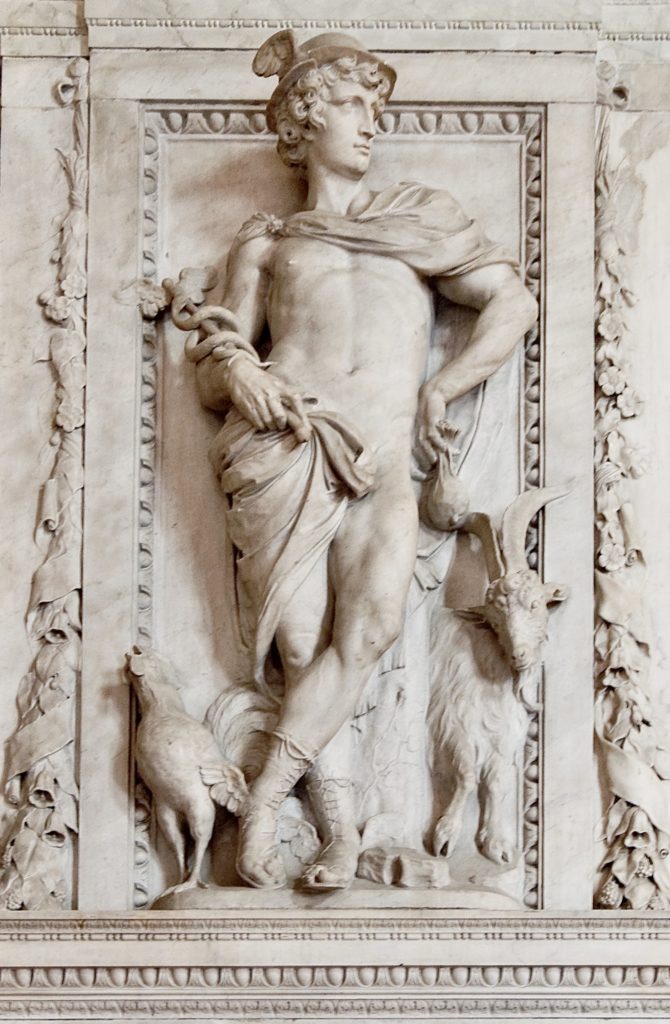
patron of trade, finance, eloquence, travel, good luck. He was also the guide of souls to the underworld. Son of Jupiter and Maya. In Rome
Terminus
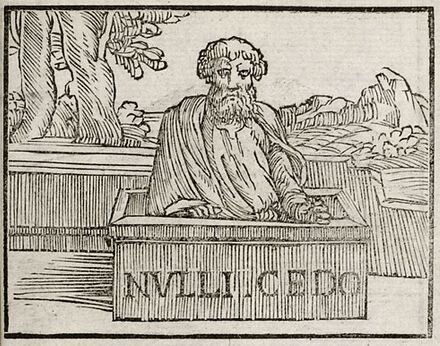
god of inter-border, peasant deity, guarded the border stones. He was offered milk, fruit, and honey.
Aesculapius
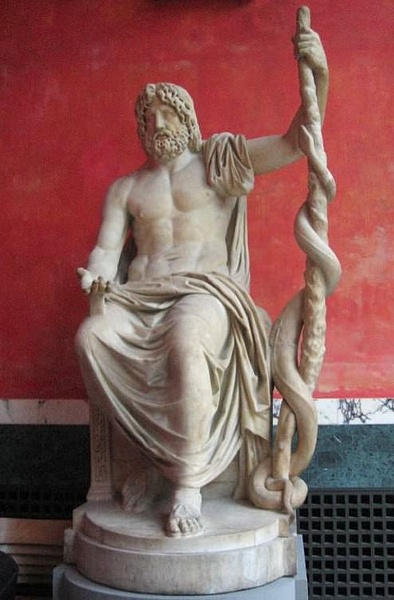
Ancient Roman god of medicine and healing in Ancient Greece. Father of Hygeia and Panacea. Asclepius represented the healing aspect of medicine. The staff of Asclepius was depicted as a staff with intertwined serpents. Until now, this symbol remains a symbol of medicine.
Fortuna

the goddess of human fate
Sol

the sun god
Luna( Selene)

the moon goddess
The Minor Roman Gods:
- Abundia, Gabona, Fulla – ancient Roman goddess of abundance, companion of Ceres. She was depicted as a woman pouring gold from the cornucopia.
- Aion (Aeon) – Greek god of cyclic or unlimited time in ancient Greek mythology and Theo cosmogony. This deity is the personification of eternity.
- Akis – god of the Akis River in Sicily. The story of the love of Akis and the sea nymph Galatea appears in Ovid’s Metamorphoses.
- Angerona( Angeronia) – Roman goddess who freed people from pain and sorrow.
- Angitia – Roman goddess associated with serpents and Medea.
- Anteworth – Roman goddess of the future
- Arimanius – little-known god, part of the cult of Mithras.
- Aura – recognized as deity of “breeze”. Northern lights, Roman goddess of dawn.
- Averrunk – Roman god, merciful to avert misfortune.
- Bellona (Duellona) – the Roman goddess of war.
- Bubona – the Roman goddess of cattle.
- Cacous – originally an ancient fire god, later considered a giant.
- Cardea – the ancient Roman goddess of door locks
- Carme – the two goddesses of childbirth: Anteworth and Postworth or Porrim, the future and the past.
- Carmenta – the Roman goddess of childbirth and prophecy and appointed a fiery juvenile.
- Carna – Roman goddess who cared for the health of the heart and other internal organs.
- Clementia – the Roman goddess of forgiveness and mercy.
- Cloacina – the Roman goddess who ruled the sewers in Rome; equated with Venus.
- Coin – minor goddess of memory, counterpart to the Greek Mnemosyne. Also used as an epithet for Juno.
- Concordia – Roman goddess of harmony, understanding and marital harmony.
- Consus – god who protects the storage of grain.
- Devera (Deverra) – the Roman goddess who ruled brooms, cleansed the temples in preparation for various services, offerings, and festivities; she protected midwives and women in labor.
- Dhea Dia – the Roman goddess of growth.
- Dhea Tacitus (Silent Goddess) – Roman goddess of the dead; later identified with the earthly goddess Larente.
- Dyous Phidias – the Roman god of oaths, is associated with Jupiter.
- Edesia – the Roman goddess of food who presides over banquets.
- Egeria – water nymph or goddess
- Fama – the Roman goddess of fame and gossip.
- Faustitas – the Roman goddess who protected herds and livestock.
- Febris (Fever) – Roman goddess who can cause or prevent fever and malaria.
- Fecundities – Roman embodiment of fertility.
- Ferunia – a Roman goddess associated with the desert, commoners, liberators, and freedom in general.
- Flore – the Roman goddess of flowers.
- Fontus (Fons) – the Roman god of wells and springs.
- Foofluns – the Roman god of wine, natural growth, and health. It was adopted from the Etruscan religion.
- Fortune – the Roman goddess of fortune.
- Furrina – a Roman goddess whose functions are largely unknown.
- Genius – faithful spirit or divine patron of every human being
- Graces or Charites – are the three goddesses of fun and joy in life, the embodiment of grace and attractiveness.
- Intercidona – lesser Roman goddess of childbirth; designed to keep evil spirits from being a child; symbolized by a wood splitter.
- Invidia – the Roman goddess of jealousy and wrongdoing.
- Iounuus – Roman god of fertility and sexual intercourse, protector of cattle.
- Juventas – the Roman goddess of youth.
- Laras – everyday Roman gods. The Romans built altars in honor of the deities who guard the home and family. When coming to the family, friends were to bring a Laram gift from the patrons of the house. Offending these gods can make the whole family angry.
- Latone – the Roman goddess of light.
- Laverne – patroness of thieves, swindlers, and charlatans.
- Levana – Roman goddess of the ritual by which fathers accepted newborn babies as theirs.
- Lhua – Roman goddess whose soldiers laid down captured weapons, possibly the consort of Saturn.
- Libera – the female counterpart of Liber, later on assimilated with the Roman Proserpine( Persephone).
- Libithina – Roman goddess of death, corpse, and burial.
- Lieber – Roman god of male fertility, viticulture, and freedom, assimilated with Roman Bacchus and Greek Dionysus.
- Lucifer – the Roman god of the morning star
- Lucina – the Roman goddess of childbirth, often described as an aspect of Juno.
- Lupercus – Roman god of shepherds and wolves; as the god of Lupercalia, his identity is unclear but is sometimes identified with the Greek god Pan.
- Lymph – Roman water deity assimilated by Greek nymphs.
- Mana – the souls of the dead who came to be considered house deities.
- Mana Genita – goddess of child mortality
- Mania – consort of the Etruscan freshwater god Mantus, may have been identified with the shadow
- Mantus – Etruscan god of the dead and ruler of the underworld.
- Mater Matuta – goddess of dawn and childbirth, patroness of sailors.
- Meditrina – the goddess of healing, was introduced to explain the Meditrinalia festival.
- Mellons (Mellonia) – goddess of bees and beekeeping.
- Mena (Mene) – goddess of fertility and menstruation.
- Mole – daughter of Mars, possibly the goddess of grinding grain.
- Morta – the petite goddess of death and one of the Parque (Roman equivalent of Moirey). The thread-cutter of life, its Greek counterpart was Atropos.
- Naenia – goddess of funeral mourning.
- Nemesis – goddess of vengeance
- Nerio – the ancient goddess of war and the epitome of bravery. Mars’ consort.
- Nox – goddess of the night
- Pales – deity of shepherds and cattle.
- Pax – goddess of peace.
- Pietas – goddess of duties; personification of Roman virtues.
- Pillum – the little guardian god, was concerned with the protection of babies at birth.
- Poena – goddess of punishment.
- Pomona – goddess of fruit trees, orchards, and orchards.
- Porrima – goddess of the future. Also called Antevortra.
- Portunus – the god of keys, doors, and cattle, was assigned a fiery juvenile.
- Providence – the goddess of foresight.
- Yuturna – Roman goddess of fountains, wells, and springs.
House deities and the patrons of the dead:
- Junnas and Geniuses – they looked after women and men.
- Lars and penates – benevolent deities of the hearth.
- Vestal – 6 priestesses, protectors of the state. They were engaged in keeping the fire in the temple of Vesta.
- Orcus was the land of the dead inhabited by the spirits of manes. Feasts in honor of the dead were celebrated on February 21 and were called Feralia, and in mid-May – Lemuria, it was believed that souls then come out of the graves and wander around the world in the form of ghosts (lemurs).
Deities of land, fields, forests, and springs:
- Tellus Mater (Mother Earth) – the most dignified of the earthly deities was the ancient goddess of the farmland, who takes the seed thrown from the hand of the sower and allows it to germinate in fertile soil.
- Venus – caretaker of vegetable gardens.
- Ops – the caretaker of the harvest.
- Flora – the protector of flowers and spring joy.
- Saturn – god of sowing.
- Faunus – a god of forests, a good spirit of forest thickets.
- Pales – looked after cattle and shepherds.
- Diana – the patroness of animals, flowering nature, green groves, and hunting.
- Neptune – commanded the deities of the waters.
The Romans also had a group of deities who personified human traits and feelings, general concepts, and imaginations. This is how they were born:
- Honor – the god of honor and honor;
- Virtus – the god of courage;
- Terminus – god of boundaries;
- Momus – the god of jokes, mockery, and mockery;
- Concordia – the goddess of harmony and harmony;
- Discordia – goddess of discord and chaos;
- Justitia – goddess of justice;
- Pax – the goddess of peace;
- Salus – goddess of health and safety;
- Victoria – goddess of victory;
- Letum – personification of death;
- Discipline – personification of discipline;
- Eternitas – goddess and personification of eternity;
- Fulgora – the personification of lightning;
- Fidessa – the epitome of loyalty;
- Felicitas – personification of happiness and success;
- Nascio – personification of the birth certificate;
- Liberalitas – personification of generosity;
- Libertas – personification of freedom;
- Puditsia – personification of chastity, one of the Roman virtues;
- Annona – The divine personification of the delivery of grain to Rome.
- Gonous – the divine personification of honor.
- Discordia (Eris) – the personification of discord and struggle.
- Morse (Thanatos) – personification of death
The cult of the Caesars:
Another important issue that arose many times in antiquity was the cult of the ruler. The ancient East has worshiped its rulers for centuries, the pharaohs of Egypt, the kings of Babylon and Assyria were for their subjects the sons of gods, beings endowed with supernatural power, the living embodiment of the deity on earth. Roman emperors, wishing to radiate their throne, reached for this supreme dignity. The first step was taken when he was officially declared a god after Julius Caesar’s death. From then on, as Divus Julius, he was to enlarge the circle of immortals. After the consecration of the new deity, the Temple of Caesar was erected on the Roman Forum.
One by one Caesar’s successors entered the Pantheon of Roman deities. The obedient Senate eagerly passed resolutions declaring a given ruler immortal; in truth, it initially happened after the death of emperors, but then more and more often as they were alive they were introduced among the gods of Rome, giving them the title of divi (“divine”).
Octavian Augustus, in order to glorify his dynasty, reached for the Trojan myth, illuminating the Julius family. During his reign, the Roman epic Aeneid was written.
There were times when the emperor’s wives and favorites were consecrated as gods and goddesses. This is what happened with the wife of Emperor Augustus, Livia. And with Emperor Hadrian’s favorite, Antoninus. Also, the Emperor Caligula of the Claudius dynasty was recognized as a god during his lifetime, unlike other Roman emperors who were considered gods only after their death.
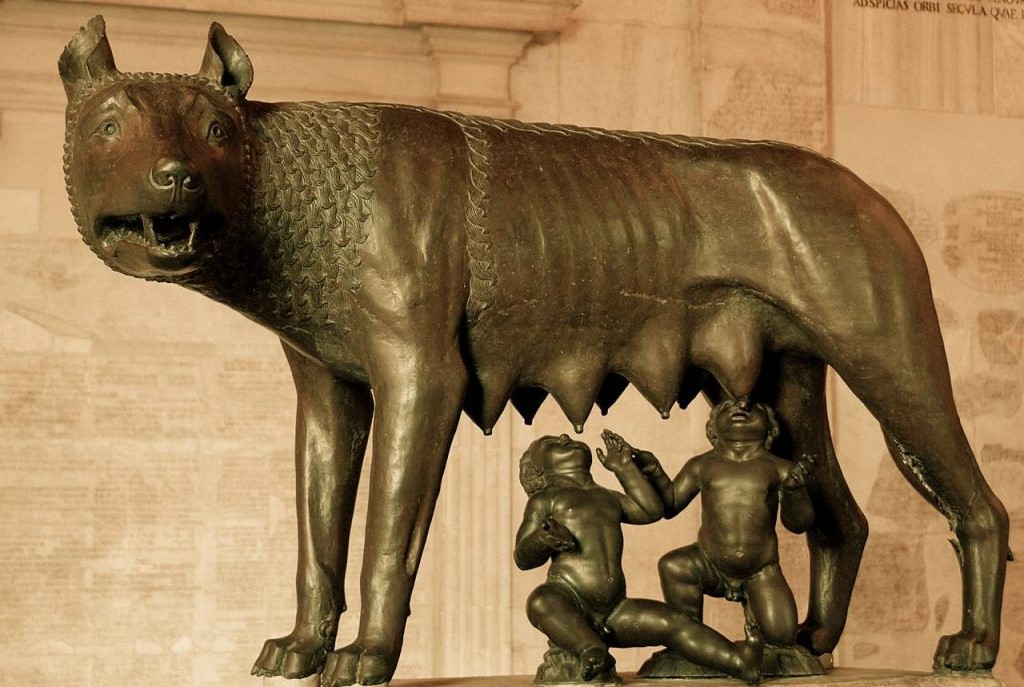
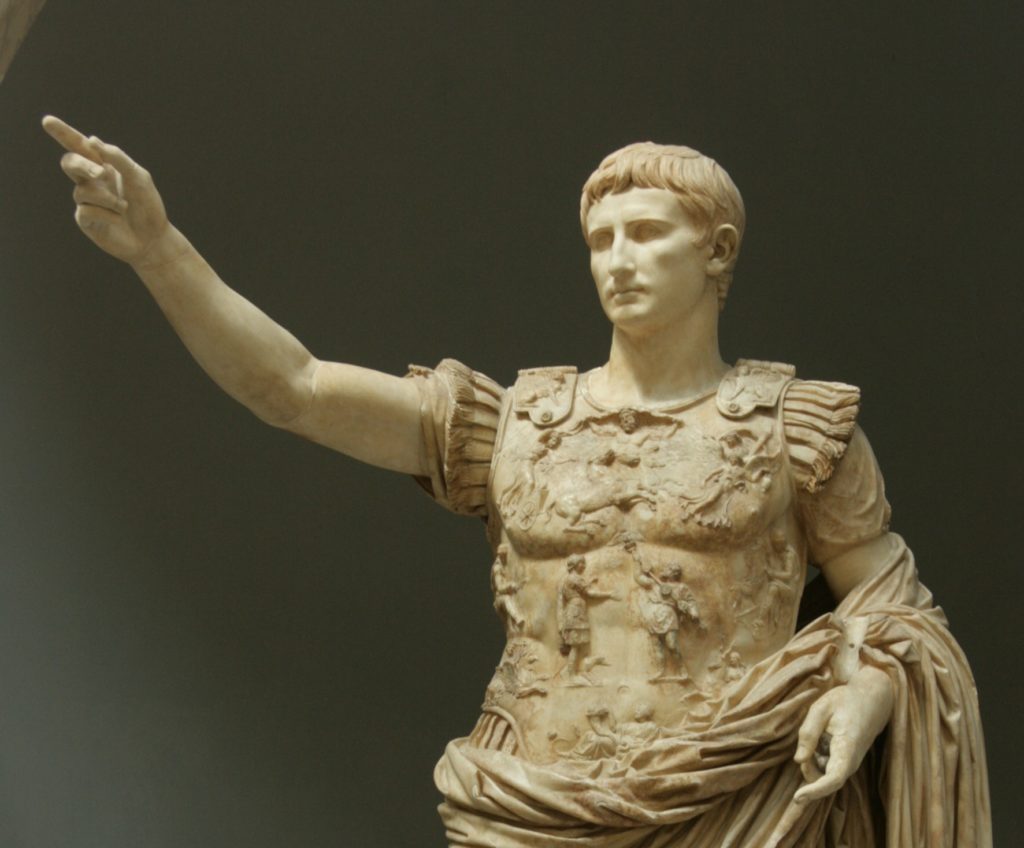
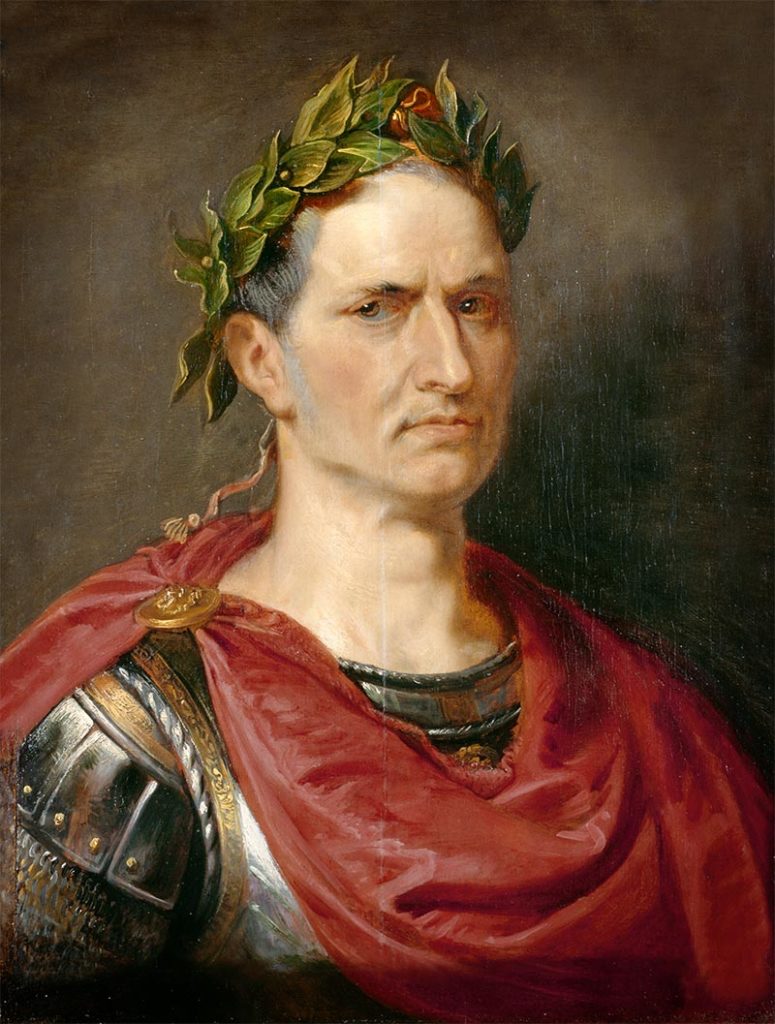

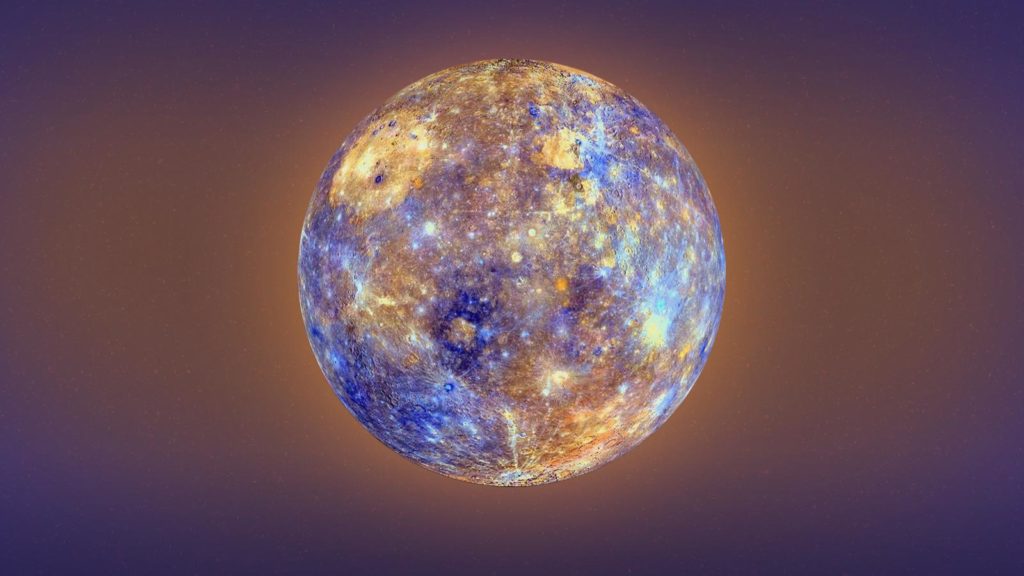

Its like you read my mind! You appear to know a lot about this, like you wrote the book in it or something. I think that you can do with some pics to drive the message home a bit, but instead of that, this is fantastic blog. A fantastic read. I’ll certainly be back.